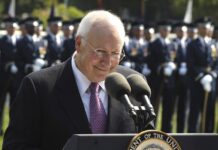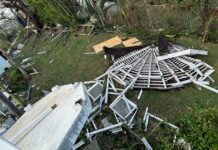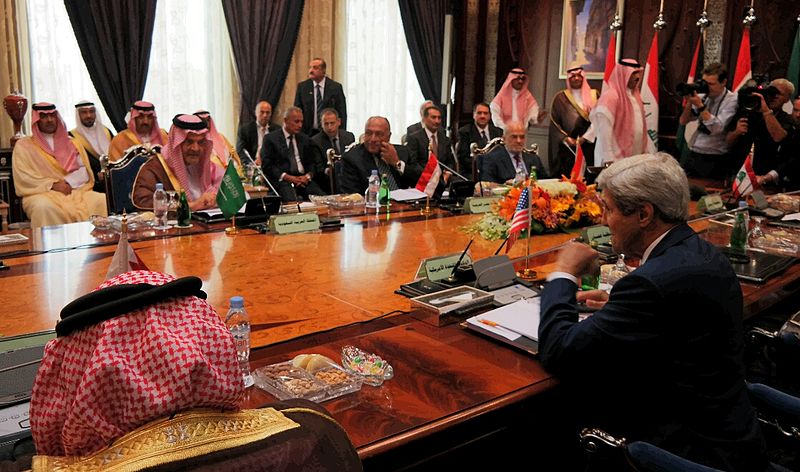Since the beginning of the standoff between Qatar and the anti-Terrorism Quartet (ATQ) (Saudi Arabia, UAE, Bahrain, and Egypt), the GCC council has been struggling to go on as if one of its members has not been facing a naval blockade from several others. Kuwait is continuing in its mediation efforts; GCC is moving forward with integration efforts, as well as strengthening partnerships with other countries and associations. Nevertheless, the legitimate concern here is that the divisions over Qatar’s unwillingness to fulfill the thirteen demands the ATQ had put forth is weakening the GCC at a particularly sensitive time. The thirteen demands were later demoted to “six principles”, but that has not changed the situation. Regional security remains the driving concern behind the blockade; Qatar’s counterargument is that alienation by fellow members of the GCC is driving the country closer to Iran.
The tensions turned into a PR battle primarily in the West; Qatar, managing to coopt opinionmakers and think tank analysts from various target groups, in addition to the usual lobbying and media PR efforts won round one. President Trump established annual US-Qatar talks, and is looking to haul in the ATQ to Camp David by May to persuade them to drop the blockade. There is no sign that this step will be met with success, as the ATQ continues to see Qatar’s alliance with Iran as a facilitation of an existential threat, and unlike the American Jewish leaders, who believed Qatar’s words that it has dropped its support for Hamas and the Muslim Brotherhood, remain deeply skeptical of such reassurances. That the Saudis and others would be concerned when one of the GCC members is growing closer to a geopolitical adversary and its proxies is not surprising; what is more interesting is their choice of response in the matter.
First, on some level, the GCC continues to try to function on all other levels – even as the news outlets of the ATQ are publicly critical of Qatar, whereas Qatar sponsors woe-is-me op-eds in major news outlets accusing the ATQ of ganging up on it because of its faster path to modernization. Second, remarkably, no one has asked the most obvious question: why a blockade? Qatar is a wealthy country; despite its lamentations about post-blockade destitution, it can certainly afford food for its people (particularly since Morocco has provided a humanitarian aid package). Furthermore, although ATQ is involved in an air, sea, and land blockade, clearly many other countries are not, and so long as Qatar has the means of getting necessities from other places, the blockade will hurt the ATQ more than it hurts their target.
Then, is the blockade more symbolic than anything else? Is it merely an economic gesture or could there be a security element that the West is not considering, with all the calls on the ATQ to lift the blockade? Qatar, after all, has also grown closer to both Turkey and Iran, stationing Turkish military, financing its treaties and operations in various African countries, and likewise, lending support to Iran. It is not out of the question that Qatar, growing closer to the two rogue states, may be assisting in some of their military adventures. It is also not out of the question that despite the fact that US air base is located on Qatar, the joint training and some of the arms sold to Qatar have gone directly to Iran or to terrorist organizations. If that is the case, why would the other Gulf States share that information with the US?
We know that at one point in the Syrian war, Qatar was one of the main suppliers of weapons to the “rebels”, who are in essence, terrorists, and now under Turkey’s watch, attacking Afrin. Given Qatar’s and Turkey’s close cooperation, it is entirely possible that Qatar may be facilitating other Iran and Turkey-led operations around the world. Interestingly, what is left unsaid in much of the analysis is that Iran, Oman, which borders Yemen and Saudi Arabia, and Qatar, share their views on Yemen, a country where Saudi Arabia and Iran are fighting a war that is no longer proxy. It would not be entirely out of the question that Qatar’s role is much more dangerous to Saudi Arabia than anyone would let on – it may be the facilitator of arms smuggling to Yemen.
The demands that Saudi Arabia and others have initially put forth and then relaxed may have been a face-saving measure; interestingly, it was the ATQ that relented on their demands, but Qatar refused to compromise even on the relatively mild demands. (Oman is already known to be a historic route for smugglers of weapons and contraband from Yemen; it became a path for Houthis soon after the uprising). Indeed, Egypt openly accused Qatar, along with Iran, for being hehind the assassination of Yemen’s former president and Saudi proxy, Ali Abdallah Saleh’s assassination. Interestingly, Qatar joined US, Saudi, and others in sanctioning Sunni terrorist groups operating in Iran. However, that lines up with Qatar’s current narrative of being tough on terrorism; besides, it has been accused of cooperating with Muslim Brotherhood and Hamas, rather than with ISIS or al Qaeda. Even the analysts who do not support the view that Iran is the main concern of Saudis in the region, but rather the Muslim Brotherhood and its proxies, that are revolutionary in nature, would agree that if Qatar has a pattern for supporting revolutionary movement, clandestine support for Houthis in Yemen, is not out of the question.
What’s more interesting is the effect of the crisis on Yemen. After the crisis erupted on June 5, 2017, Qatar withdrew its forces from Yemen, splitting the ministers of the government, some of whom sympathized with Qatar in that situation. What’s even more fascinating is that in part due to US lack of support in ground movements in Yemen, the Saudis and Emiratis have backed assorted terrorist factions against the Houthis. Why would they have risked a simultaneous “front” against Qatar over its support of various entities when they needed all the help they could get in Yemen, and when the crisis further weakened the support for the Saudis by splitting the government? There are two possible explanations. The first is the one proferred by Qataris themselves, largely through propaganda, in conjunction with the Iran nuclear deal supporters and assorted sympathizers in the West: that the Saudi Crown Prince Mohammed bin Salman, is inexperienced, irrational, rash, and has poor grasp of strategy.
He rushed headlong into all the military operations he could find, and in a show of bravado, went after Qatar before thinking through how it could affect Saudi Arabia’s security considerations elsewhere. At first glance, this explanation is certainly plausible, but most likely, it is also wrong. Qatar’s support for assorted enemies of Saudi Arabia has been going on for years. Likewise, Mohammed bin Salman’s personal involvement in Yemen preceded the crisis, and he was appointed personally by King Salman not because he was naive, stupid, and a poor strategist,,, but because he likely agreed with the strategic vision of some of the more influential and rising leaders inside the vast Saudi families, but also had the boldness to carry that vision through. That means, of course, that the course of action was not random and impulsive, but rather, had been thought out for quite some time and only announced at around the same time as Mohammed bin Salman’s appointment to send a message to all the parties likely to be affected by this turn of events.
More likely explanation for why the Saudis took the risk of alienating an ally on a front that is geographically of existential importance to Saudis, given Yemen’s proximity to their own territory, is that they realized that Qatar was already growing closer to Iran, and either were concerned about or actually had evidence of Qatar’s tacit support for Iran’s proxy games with Houthis, if not actual involvement. Quite simply, Qatar could not be trusted, and because it may have been one of the sources of arms coming into Yemen, the strategic defense tactic they chose was to try to eliminate the weapons from leaving Qatar and coming into Yemen. For that reason, Morocco’s or Japan’s or China’s trade with Qatar is of no interest to Saudis. Those countries are pursuing their own political ends and economic interests, and indeed trading in LNG, delivering food, and maintaining good relations with those sides. The real issue is not what the ATQ wants to prevent from going into Qatar, but what they want to prevent from going out.
They wanted Qatar out of Yemen, and the best way to get it out of there completely was to blockade Qatar immediately. That would also allow for closer monitoring of other shipments. That still does not answer the question: if there is clandestine activity of any kind that is related to Yemen and involves Qatar, why is there no evidence of that? First, Qatar has been pretty good at cleaning up its act with respect to presenting a clean new look related to Hamas and Muslim Brotherhood. For sure, it has been careful to stay out of visible trouble with respect to Yemen. And it’s not out of the question that there is more going on than meats the eye, because only a few months later, Qatar opened a big port that is quite friendly to Iran. Maybe that port was planned regardless, but more likely the rapprochement has been long in the works, and that port is an important stop for any smuggling attempts to Yemen and other places. Iran is outwitting the Saudis through the use of diplomacy, soft power within Central Asian, African, and other states, as well as mockery of Saudi’s own alliances, and their inability to garner US support for their internal struggles with Iran-backed Shi’a groups, Islamists, or others.
Of further import, despite Oman’s stated neutrality on Yemen and the Gulf Crisis, which displeased both King Salman and President Trump, Muscat offered its waterways to Doha, for export of gas, food supplies, and other items. Such “neutrality” not only signals Oman’s growing closeness to Iran, but raises questions about the use of the waterways for smuggling. Meanwhile, there is a great deal of other allegations, which even the US is now admitting – such as Iran’s supply of missiles to Yemen, which Houthis use to fire in the direction of Saudi Arabia – for which precious little evidence has been presented, despite the fact that it is fairly obvious what is going on. If Qatar’s involvement in these operations is sub rosa, making such claims against a rising international skepticism of Saudi leadership will only anger the already wavering allies, without substantially bolstering Saudi claims.
The second issue, is that Saudi Arabia has terrible PR. They have not thought of making persuasive videos and photo ops of the humanitarian aid they are providing to Yemenis, nor of the savagery of the Houthi human shield wielders, nor of the photographs of Houthis receiving smuggling shipments from Iran, that precipitated the Saudi blockade of humanitarian aid in Yemen. Some statements to that effect have been made for the benefit of the Arab Coalition, but the wider public remains blissfully unaware of these important developments. What seems obvious and common sense to the Coalition requires painstaking and effective evidence for the skeptics elsewhere, particularly in the US, where the Saudis have a terrible reputation. That does not help their own image. The third issue here is the cultural anxiety about losing face. The ATQ realizes that they were outwitted by fellow GCC members in conjunction with Iran.
They were hoping to take care of the matter quickly, and thought that the threat of Iran and various terrorist entities would be enough for the US and others to immediately take the side of the ATQ on the matter, pressure Qatar, and resolve the situation quietly, without drawing attention to the dangerous root of the problem that shows ATQ’s defenses and intelligence significantly weaker than what they would like the world to believe. Rather than coming forward with accusations, the ATQ acted circumspectly, but once they started making up assorted cover stories and various theories and rumors began to fly, their circumspection began to look a lot like deception.
Alleged fake quotes, which may have been planted by Iran to add to fuel to the fire at the outstart, or by the terrible Saudi communications advisers, did not help matters, but escalated the situation and hurt ATQ’s credibility. Under pressure from the West, ATQ backed off from their strategic demands, despite being fully convinced that those demands are necessary for their own safety. That, ironically, proved to be a significant loss of face for them, because despite all these concerns being legitimate, Qatar just kept winning PR round after round, forcing her accusers to make significant concessions without at any point making a single sacrifice, even for the sake of appearances.
GCC, at this point, is imploding under the weight of these tensions. Dissolving altogether will greatly hurt the influence of each individual actor, and undermine their efforts in other respects. Qatar’s growing relationship with Iran is in contradiction to the interests and general policy of the entire group, but expelling Qatar would be a great embarrassment, a show of failure, and an additional escalation measure which can draw condemnation from other Arab states, and further exacerbate existing problems. Iran, of course, is taking full advantage of this awkward situation. Luring Qatar away from the GCC is a major diplomatic coup; humiliating its adversaries in PR match-ups is a cherry on top.
Now all is left is turn the US against the ATQ altogether (already in part accomplished by having the Trump administration publicly rebuke Egypt for allowing illicit arms trade with North Korea and sanctioning it), and essentially serve Iran’s purposes by having the US side with Qatar on essential security matters. Qatar is Iran’s ticket back to legitimacy. Qatar can be used as the public social arm of Iran’s strategy, the good little US ally that has been maligned by the bad Saudis, who are responsible for the near collapse of the GCC. In the event of its deals with the European Union falling through due to banks balking at the high risk of sanctions, Qatar can be used as a safe haven. While the GCC members are left struggling to figure out how to move forward, Iran will claim further geopolitical and economic victories, utilizing proxies to score diplomatic points, until even the Iran critics are so deeply involved in sponsoring Iran’s efforts and those of its proxies through Qatar that it becomes too late.
It is clear that the ATQ, to avoid losing face even more that it already has, will insist on leaving the blockade in place, even though, from the diplomatic standpoint it is a loss for them. They will be lucky if President Trump, after failing to convince them to lift the blockade in May, turns a deaf ear to Qatar’s pressure and does not slap them all with additional sanctions and public rebukes, further isolating them and making it harder to maintain even a semblance of regional leadership in light of Iran’s growing hegemony and Qatar’s newfound popularity. The ATQ, then, must find a way of either separating Qatar from Iran and offering some incentive to return to the fold and restrengthening the GCC as a single unit, or failing that, must change its strategy entirely, and refocus on exposing Qatar’s role in its alliance with Turkey and Iran in destabilizing Africa and other regions, arming violent movements, and presenting a direct danger to world stability and US interests.
At the same time, the ATQ must stop with the face-saving deceptions that lead only to further disasters and nothing but disdain and rebuke from the West, and engage in transparent, honest relationships with their allies, based in mutual trust and clear presentation of their concerns and evidence of threats, that must be presented in terms of the US interests and not just self-serving agendas. None of the leaders of the ATQ are imbeciles, impulsive reactionaries, or bloodthirsty sadistic murderers. They may be scared, concerned, or threatened, and they are mired in outdated paradigms of reign and relationships that must involve into affirmative, assertive, and relatable strategies that the West can clearly see the advantage of having a stake in. GCC is not in a good place right now, but it needs not head to the doom; past miscalculations are addressible and reversible. IRan and her proxies can be stopped, if the ATQ stops trying to cover up for its perceived past failings and rather moves on with dignity towards resolving the current problems as they are.

























